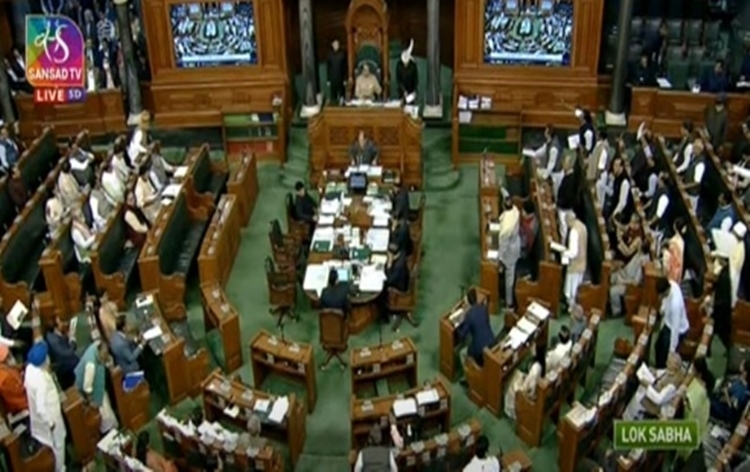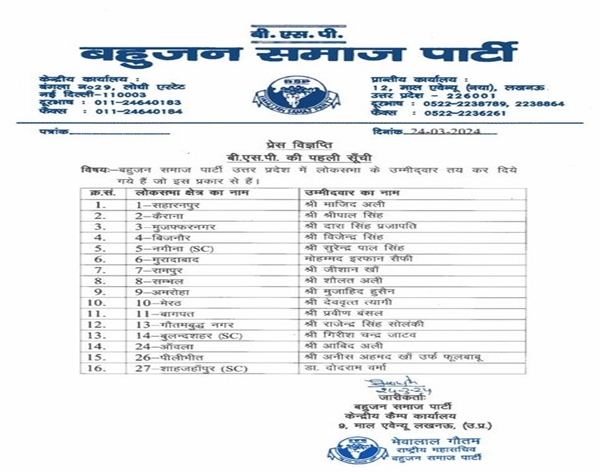In a landmark move, Home Minister Amit Shah today introduced three Bills in the Lok Sabha to replace colonial-era laws, asserting that the proposed laws will transform the country's criminal justice system and bring the spirit to protect the rights of the Indian citizen at the centre stage.
Shah introduced the Bharatiya Nyaya Sanhita Bill, 2023; Bharatiya Nagrik Suraksha Sanhita Bill, 2023; and Bharatiya Sakshya Bill, 2023 that will replace the Indian Penal Code, 1860, Criminal Procedure Act, 1898 and the Indian Evidence Act, 1872 respectively. He said the changes were done to provide speedy justice and create a legal system that keeps contemporary needs and aspirations of the people.
The Bharatiya Nyaya Sanhita Bill has provisions that seek to repeal sedition, and award maximum capital punishment for crimes such as mob lynching and rape of minors, the Home Minister said. The Bill also has provisions to provide first-time community service as one of the punishments for petty offences. The Bill also lists new offences such as acts of secession, armed rebellion, subversive activities, separatist activities or endangering the sovereignty or unity and integrity of India.
The Home Minister said, "I can assure the House that these Bills will transform our criminal justice system. The aim will not be to punish, it will be to provide justice. Punishment will be given to create a sentiment of stopping crime," Shah said while noting that the laws made by Britishers were full of signs of slavery aimed at punishing those opposed to their rule. The Home Minister also urged the Lok Sabha Speaker Om Birla to refer the three Bills for examination by the Parliamentary Standing Committee on Home Affairs.
The Minister said the focus of the laws that will be repealed was to protect and strengthen the British administration, the idea was to punish and not to deliver justice. He said by replacing them, the new three laws will bring the spirit to protect the rights of the Indian citizen at the centre stage. The offences against women and children, murder and offences against the State have been given precedence, Shah said, adding that various offences have been made gender-neutral.
According to the Bill, the experience of seven decades of Indian democracy calls for a comprehensive review of our criminal laws, including the Code of Criminal Procedure and adopting them in accordance with the contemporary needs and aspirations of the people. It said the government's mantra was "Sabka Saath, Sabka Vikas, Sabka Vishwas and Sabka Prayas" and it was committed to ensuring speedy justice to all citizens in conformity with the constitutional democratic aspirations. The crime of murder will invite death sentence or life imprisonment while those involved in rape shall be punished with minimum 10 years of jail or imprisonment for life and gang rape will invite at least 20 years of imprisonment or imprisonment for the remainder of that person's natural life.
According to the Bills, if a woman dies after the rape or it causes the woman to be in a persistent vegetative state, the convict shall be punished with rigorous imprisonment for a term which shall not be less than 20 years, but which may extend to imprisonment for life, which shall mean imprisonment for the remainder of that person's natural life, or with death. Whoever commits rape on a girl under 12 years of age shall be punished with rigorous imprisonment for a term which shall not be less than 20 years, but which may extend to imprisonment for life, which shall mean imprisonment for the remainder of that person's natural life, and with fine or with death. The Home Minister said the Bharatiya Nyaya Sanhita Bill has provisions that seek to repeal sedition and award maximum capital punishment for crimes such as mob lynching and rape of minors. The Government proposed to abolish the provision for sedition but brought it in a different way.
According to the proposed law, anyone purposely or knowingly, by words, either spoken or written, or by signs, or by visible representation, or by electronic communication or by use of financial means, or otherwise, excites or attempts to excite secession or armed rebellion or subversive activities, or encourages feelings of separatist activities or endangers sovereignty or unity and integrity of India; or indulges in or commits any such act shall be punished with imprisonment for life or with imprisonment which may extend to seven years and shall also be liable to fine. Shah said the changes were brought in to provide speedy justice and create a legal system that keeps contemporary needs and aspirations of the people.
According to the proposed law, whoever commits murder shall be punished with death or imprisonment for life, and shall also be liable to pay a fine. The Bill also has provisions to provide first-time community service as one of the punishments for petty offences. Earlier, the Lok Sabha approved amendments to the Central and Integrated GST laws to levy a 28 per cent tax on the full face value of bets in online gaming, casinos and horse race clubs.
Finance Minister Nirmala Sitharaman introduced bills in the House on the last day of the monsoon session of Parliament, amid opposition protests over suspension of Congress leader Adhir Ranjan Chowdhury. The Central Goods and Services Tax (Amendment) Bill, 2023, and The Integrated Goods and Services Tax (Amendment) Bill, 2023, were passed by the Lok Sabha by a voice vote, without a debate.
States will now get the amendments passed in the state GST laws in their respective assemblies.
The amendments pertain to ion of a provision in the Schedule III of the CGST Act, 2017, to provide clarity on the taxation of supplies in casinos, horse racing and online gaming. The amendment in IGST Act relates to ing a provision to impose GST liability on online money gaming provided by offshore entities. Such entities would be required to get GST registration in India.
The amendments will also provide for blocking access to online gaming platforms located overseas in case of failure to comply with registration and tax payment provisions.
The amendments to the Central GST and Integrated GST laws were approved by the GST Council last week. The council had approved levy of 28 percent GST on full face value of entry-level bets in online gaming, casinos and horse racing. Later, the Lok Sabha was adjourned sine die, bringing down the curtain on the Monsoon session of Parliament that witnessed persistent protests over the ethnic violence in Manipur and a fiery debate on the no-confidence motion against the BJP government. The discussion on the no-confidence motion, initiated by Congress leader Gaurav Gogoi lasted for nearly 20 hours with the participation of 60 members.
Prime Minister Narendra Modi responded to the debate on the motion, which was rejected by a voice vote. The session also witnessed suspension of the Congress leader, Adhir Ranjan Chowdhury for gross, deliberate and repeated misconduct. This angered the opposition members to boycott the valedictory address by the Lok Sabha Speaker Om Birla. "During this session, we held 17 sittings which lasted for 44 hours and 13 minutes," Birla said, adding that 20 government bills were introduced and 22 draft legislations were passed by the lower house.
Some important bills that were passed during the session were the Multi-State Cooperative Societies (Amendment) Bill, Digital Personal Data Protection Bill, National Nursing and Midwifery Commission Bill, National Dental Council Bill, Jan Vishwas (Amendment) Bill, Government of National Capital Territory of Delhi (Amendment) Bill, and the Armed Forces Organization (Command, Control, and Discipline) Bill.
News On AIR | August 11, 2023 9:18 PM | Review of Parliament proceedings in Lok Sabha
Review of Parliament proceedings in Lok Sabha















